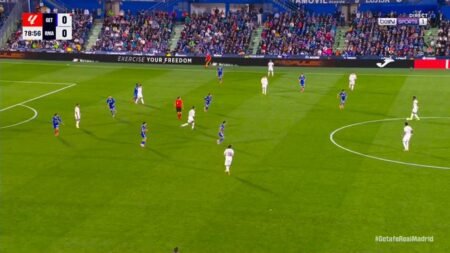It’s been four months since Noah Jones crowned Berlin City as the champion of Season 2 with his decisive goal. The other teams have had four months to strengthen themselves in order to launch a full attack again this year. Now the preparation is over, and on Sunday, September 28, after the long break, it finally starts again.
The first matchday of Season 3 will be held at the ZAG Arena in Hanover. This is a change compared to last season, when all matchdays took place at the Castello in Düsseldorf. In Season 3, matches will be played in several cities to give a larger audience the chance to be there live. The venues include Hanover, Hamburg, Düsseldorf, Leipzig, Stuttgart, and Bremen.
But there have also been several changes to the rules:
The Rulebreaker is now chosen differently than last season, when it was selected by a team head. Instead, there is now a package of two Rulebreakers available. From these two, the team heads can decide during the game which one they want to use.
Additionally, two brand new Rulebreakers have been introduced. The “5 Shot” Rulebreaker gives a player from a team the opportunity to take five free shots from different positions against the goalkeeper. The goals scored count for their team. The shooter has a total of two minutes for these five shots, during which the game is paused.
The second new Rulebreaker also causes a two-minute interruption. In the “Triple Threat,” the shooter selected by his team has three attempts to score in a one-on-one against the goalkeeper. He has seven seconds for each attempt. All goals he scores during his attempts count as regular goals for his team.
Critics argue that these two-minute interruptions disrupt the flow of the game. Whether this actually leads to a loss of quality will be seen in the first matchdays.
On the other hand, “Passive Play” has been introduced to penalize delays in play. This increases the speed of the game. If a team is not clearly trying to score, it has five seconds to play the ball into the opponent’s half. If it fails to do so, the opposing team gets the ball at the goalkeeper.
Furthermore, the “Buzzer Beater” has been introduced, modeled after basketball. Goals count if the ball has left the shooter’s foot before the final buzzer.
Last season, there were many overtime games because both teams were rewarded: the winning team received three points, while the losing team still got one. To counter this trend, a team that wins in overtime now only receives two points. This increases the incentive to decide the game within regular time.
What do you think of the new Rulebreakers? And do you think there will be fewer overtime games now? Write your opinion in the comments!
📸 Pau Barrena – 2024 Getty Images
Read the full article here














